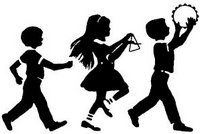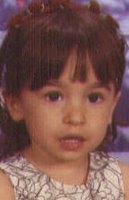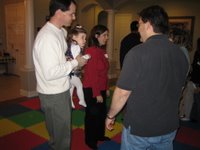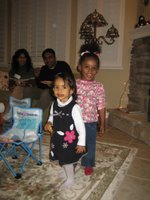A New Year's Wish by Miss Sunny

Year's end is neither an end nor a beginning but a going on, with all the wisdom that experience can instill in us. ~Hal Borland
In a classroom of Kindermusik babies, toddlers, sisters and brothers,
we've created a musical learning experience like no other.
It has been my privilege to partner with each Kindermusik family,
to be in the company of each child and to witness her amazing growth and development.
Your committment to your child's early education,
highlights your beliefs, values and personal dedication.
As the New Year approaches and brings forth a new resolution,
my New Year's wish is that we may continue to delight in the celebration of each child's unique expression.
I look forward to building upon the wisdom and experience we've gained together,
so we may lovingly support our children's full learning potential and musical exploration.
A warm Musikandmotion thank you for your support in 2006. Happy, healthy and harmonious New Year, Kindermusik families!



























